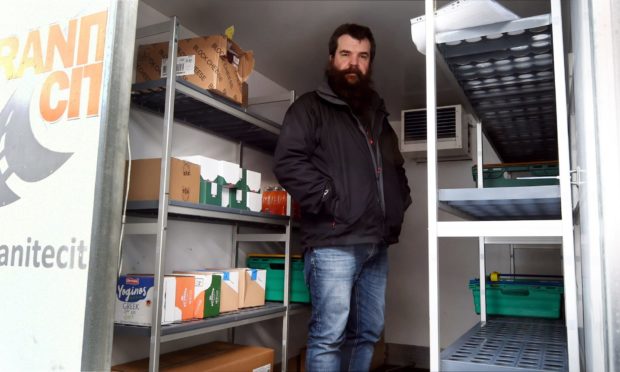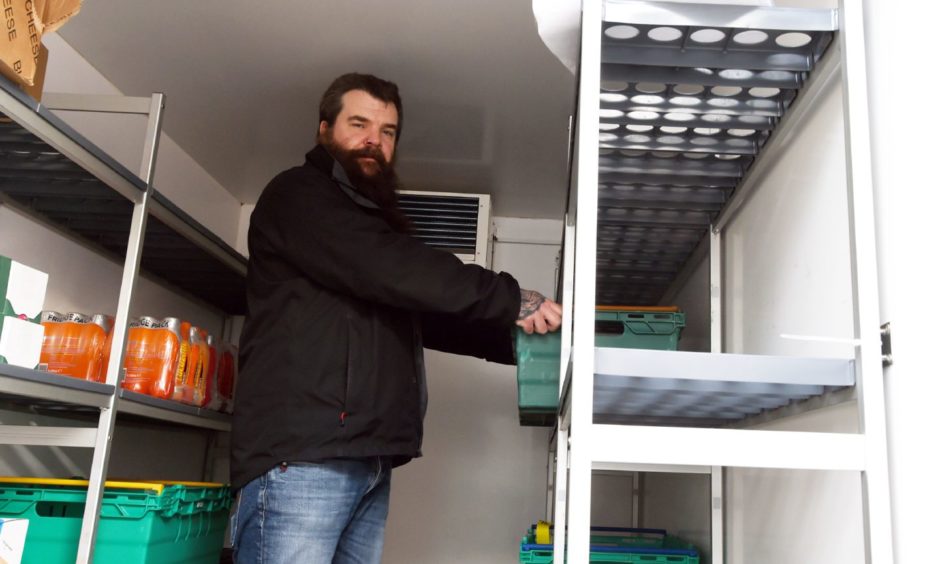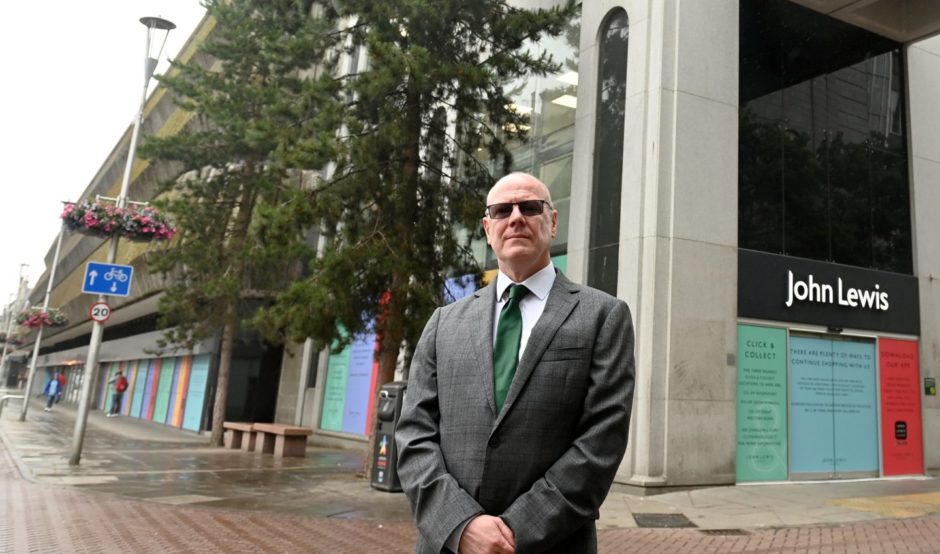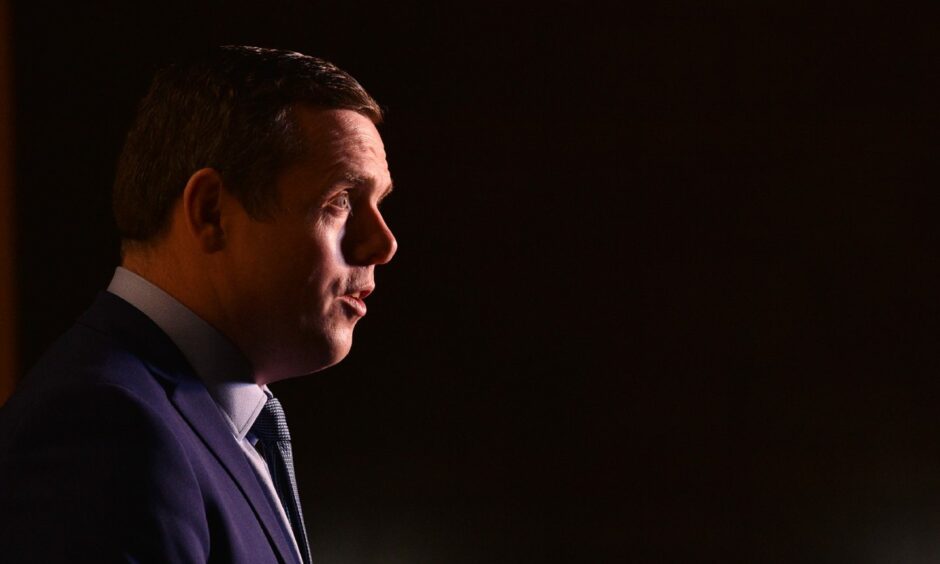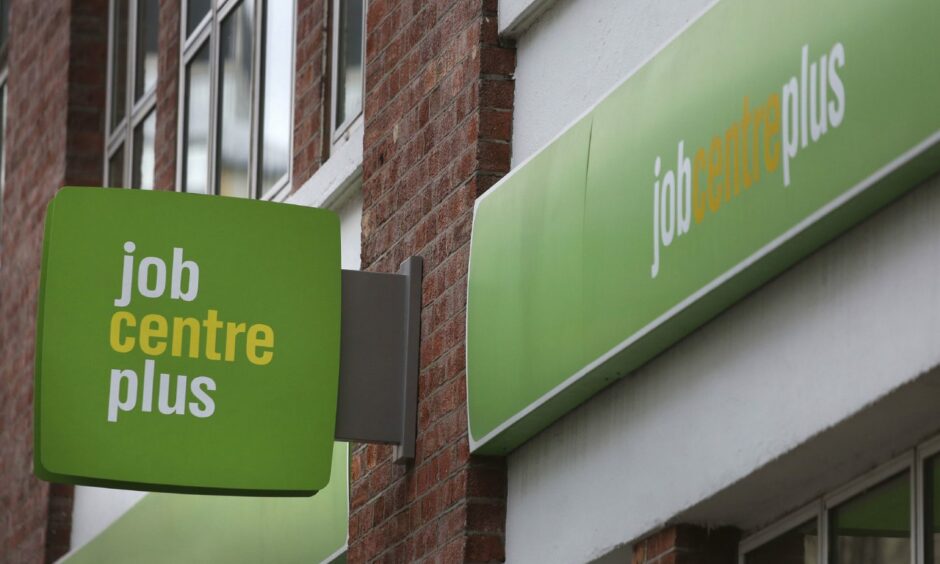An Aberdeen foodbank is expecting an “influx” of clients on Universal Credit after the £20 a week uplift is cut next month.
The UK Government is preparing to reduce payments by £20-a-week from October 6 – the equivalent to £1,040 a year – in the biggest cut to the basic rate of social security since the Second World War.
More than 32,000 youngsters across the north and north-east will be impacted by the cut, new figures have revealed, with more than 10,000 in the Highlands and more than 8,000 in Aberdeen and Aberdeenshire, respectively.
‘Huge worry’
Evan Adamson, who runs the foodbank at Aberdeen charity Instant Neighbour, said the impending cut is a “huge worry” – with at least half of the foodbank users receiving Universal Credit.
The temporary uplift was introduced to help claimants weather the storm of the coronavirus pandemic, but charities and politicians have called for it to be made permanent.
Foodbank users are experiencing a “double blow” due to the upcoming withdrawal of the £20 a week uplift and fewer food donations due to the rise in food prices, Mr Adamson added.
He said: “We’re expecting an influx of clients on Universal Credit when this happens because of the drop but also the end of furlough.
“There’s no doubt there’s going to be a lot of people let go, employment-wise.
“The rising cost of shopping and issues with Brexit means that donations have dropped to foodbanks as well.
“There is concern across the board in the emergency food aid sector.”
‘Utterly appalling’
Aberdeen Central MSP Kevin Stewart said it is “utterly appalling” that more than 8,000 children in the Granite City will be impacted by the cut.
It comes after we revealed last month that the north of the city is among the worst-hit constituencies in Scotland.
He said: “Unfortunately, thousands of children across our city, and hundreds of thousands across Scotland, are now going to see support to their households being cut by the UK Government.
“I think it’s frankly disgusting that the Tory Government are trying to balance their budget on the backs of nearly a quarter of a million children in Scotland.
“If Douglas Ross and his party genuinely cared about families, they would be opposing this cut with every fibre of their beings instead of clinging to their party line like limpets.”
‘Right these measures are removed’
Moray MP Douglas Ross defended plans to cut Universal Credit last month, despite more than 3,000 families in his constituency facing having their benefits slashed.
The Scottish Conservative leader remains tight-lipped on his personal opinion of the plan, but confirmed he did not disagree with the approach taken by the UK Government.
When asked his position, a spokesman for the Scottish Conservatives said: “During the height of the pandemic, the Scottish Conservatives successfully campaigned for the £20 uplift to be extended by six months.
“These funds provided a safety net to nearly half a million vulnerable people in Scotland at an unprecedented, uncertain time.
“But with restrictions largely gone and our recovery under way, it is right that these measures are reviewed as the focus shifts to helping people get back into work.
“It is right that the UK Government considers carefully how it will start to pay back what has been spent during this crisis.”
Nicola Sturgeon said Boris Johnson would expose an “absence of basic humanity and moral compass” if he goes ahead with the cut.
Speaking at the SNP conference, she warned the move would “drive people into debt and, in some cases, to destitution and despair”.
‘Vital support’
A UK Government spokesman said the uplift to Universal Credit was “always temporary” and “was designed to help claimants through the economic shock and financial disruption of the toughest stages of the pandemic”.
He added: “Universal Credit will continue to provide vital support for those both in and out of work and it’s right that the Government should focus on our Plan for Jobs, supporting people back into work and supporting those already employed to progress and earn more.”
“The Scottish Parliament has significant welfare powers and can top-up existing benefits, pay discretionary payments and create entirely new benefits in areas of devolved responsibility.”
